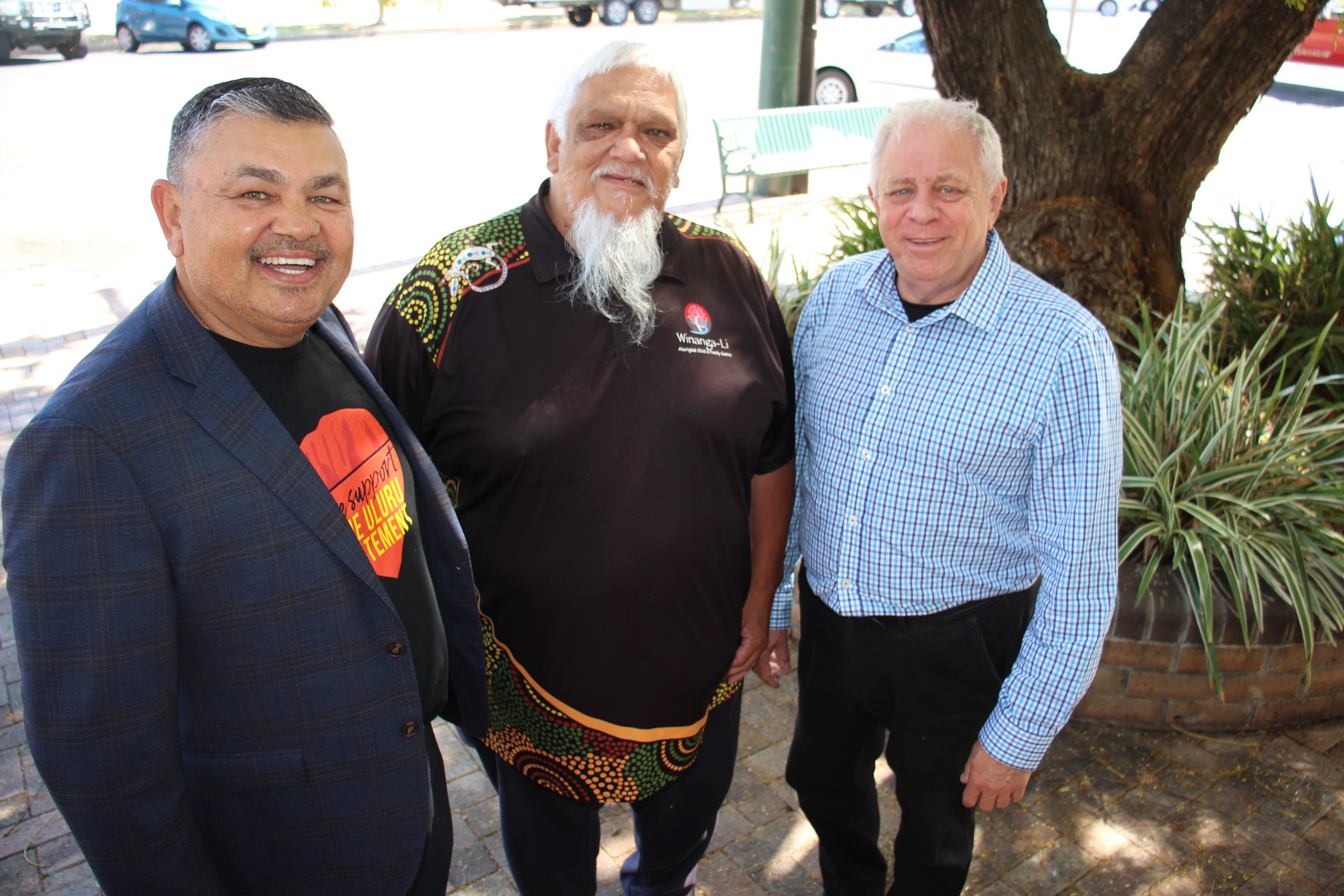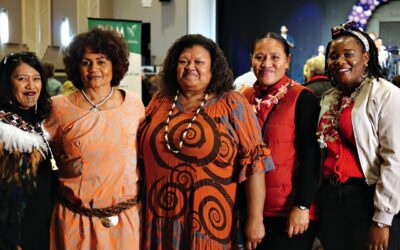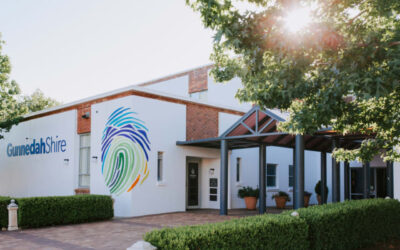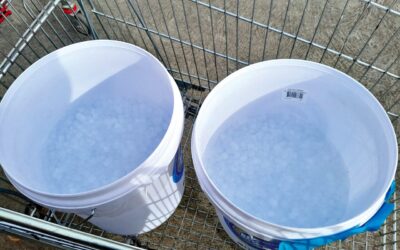The Gunnedah community was offered the opportunity to learn more about the Voice to Parliament referendum during an information session at the Town Hall last week.
Led by representatives from the Uluru Dialogue Leadership Group, the event first provided background on indigenous recognition in Australia within the last century or more.
This was followed by a presentation from Roy Ah-See and Geoff Scott about the referendum question and how it was developed through the Uluru Statement from the Heart.
The Uluru Statement outlines a vision for the establishment of a First Nations ‘Voice’ in the Australian Constitution and a ‘Makarrata Commission’ to supervise a process of ‘agreement-making’ and ‘truth-telling’ between governments and Aboriginal and Torres Strait Islander peoples. It was developed in 2017 by delegates from regional dialogues across the country and described as the largest First Nations’ consultation in Australian history.
Mr Scott said there was much conjecture about what the Voice will and will not do but their message was a simple one.
“It’s helping people to understand what was asked of the Uluru Statement,” Mr Scott said.
“There has been a lot of debate which is confusing and unfortunate, but the ask is simple: for recognition in the constitution and to give a say in matters that affect us.”
“We’re trying to keep the commentary and debate simple.
“Sadly, it has become partisan at political level which is not good for anybody.
“It is about having some structural change so we have some real impact, it’s the power of influence. There’s not power of veto (in the Voice to Parliament), no change in our democracy, it actually works with democracy because we’re talking more about it.”
Mr Ah-See said it was true there were many questions the dialogue group and referendum question could not answer because the answers would be governed by the “political process” to follow. Should the majority vote in favour of the referendum question, he said detail about the Voice would developed by politicians though legislation in parliament.
“The referendum is for the Australian people, the parliament is for the politicians,” Mr Ah-See said.
“The politicians get to make up what that structure looks like. We can’t override parliament, that’s a misnomer, so for these politicians to ask ‘where’s the detail?’, they know full well we can’t provide that, they have to.”
Mr Ah-See said some structure has already been established with the existence of Aboriginal medical and legal services, land councils and native title rights. But what’s lacking is a “coordinated national voice” to help guide a path forward to better outcomes for indigenous Australians.
Mr Scott said successive governments had tried many times in recent decades to bring about change but with little success. One of the most well documented organisations dissolved by government was the Aboriginal and Torres Strait Islander Commission (ATSIC) in 2004.
The Uluru dialogue group director said the establishment of a constitutionally-recognised voice to parliament would ensure future generations of indigenous people would be able to continue to have a say on matters directly affecting them.
Mr Scott said it would be a voice “protected from politicians”.
“We are asking for a change because the government keeps creating bodies and abolishing them on a regular basis and that can’t go on,” he said.
“I think most Australians would be appalled we spend $30 billion a year (on indigenous Australians) for very little result.”
What ever their vote, Mr Scott warned people to be wary of misinformation about the referendum and to seek out credible information sources to enable them to make an informed decision.
According to the Australian Parliamentary Library, a change in the constitution will only come into effect if the proposal receives the support of a majority of voters in a majority of states. It said there have been 44 referendums since 1901, of which only eight have succeeded. The most successful attempt to change the Constitution was the 1967 referendum in which more than 90 per cent of the population voted to allow the counting of Aboriginal and Torres Strait Islander peoples in the Census, and the federal government to make laws for Aboriginal and Torres Strait Islander peoples.
Early voting for the referendum starts in less than two weeks (October 3) ahead of the official voting day Saturday, October 14. Voting in the referendum is compulsory.
To order photos from this page click here



